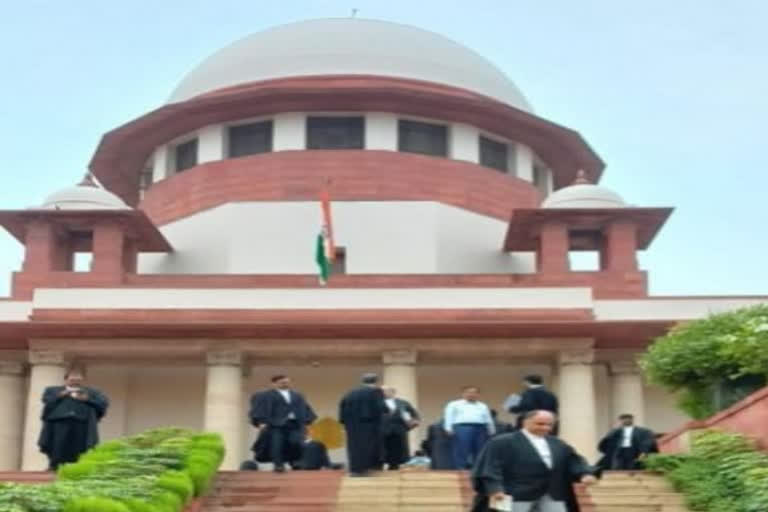New Delhi: The Supreme Court on Tuesday sought responses of the National Investigation Agency (NIA) and the state of Maharashtra to jailed activist Gautam Navlakha's plea that he be placed under house arrest instead of judicial custody in the Elgar-Parishad case. The 70-year-old activist has appealed to the apex court against the April 26 order of the Bombay High Court dismissing his plea for house arrest over apprehensions of lack of adequate medical and other basic facilities in Taloja jail near Mumbai where he is currently lodged.
The petition came up for hearing before a bench of Justices K M Joseph and Hrishikesh Roy which issued notices to the NIA and the state seeking their responses. The bench has posted the matter for resumed hearing on September 29. The case relates to alleged inflammatory speeches made at the Elgar Parishad conclave held in Pune on December 31, 2017 which the police claimed triggered violence the next day near the Koregaon-Bhima war memorial on the outskirts of the western Maharashtra city.
The Pune police had claimed the conclave was organised by people with Maoist links. The NIA later took over the probe. During the hearing in the apex court, the counsel for Navlakha said the petitioner had moved the high court on the basis of the top court's May last year order passed on a plea by the jailed activist.
In its last year order, the apex court had expressed concern over overcrowding in jails and said it will be open for the courts to consider ordering house arrest of accused under provisions of the Criminal Procedure Code. "Based on this order, we had moved the Bombay High Court saying that I (Navlakha) in fact fulfil all the criteria that this court had laid down in this matter and please allow house arrest because I am in bad medical condition. I am 70-year-old. I have been under house arrest before as also I have no previous criminal antecedents," the counsel said.
On being asked by the court about the nature of the crime for which he has been arrested, the counsel said there are allegations about commission of offences covered under the Unlawful Activities (Prevention) Act, but none of those are made out against the petitioner. The counsel said, if the apex court so directs, Navlakha can be put under house arrest in Mumbai, where his two sisters live, or in Delhi.
On August 29, apex court judge Justice S Ravindra Bhat had recused from hearing Navlakha's plea. The high court had said Navlakha's apprehensions about the lack of medical aid and inadequate basic facilities at the Taloja prison, where he is currently lodged as an undertrial, were "ill-founded".
The apex court had earlier granted bail to 82-year-old activist P Varavara Rao in the case. Navlakha had told the high court the Taloja prison is overcrowded, the toilets dirty and that his medical condition deteriorated during his incarceration there. "The case of the petitioner does not fit in any of the criteria (provided for by SC). The apprehension of the petitioner that he will not be provided medical aid and his life will be miserable in unhygienic conditions and atmosphere of the prison seems to be ill-founded," the high court had said.
Navlakha had approached the high court contending the Taloja prison had poor facilities. He had claimed he was denied a chair, a pair of slippers, his spectacles, and a PG Wodehouse book by the prison superintendent. (PTI)



